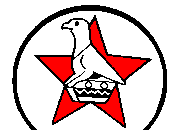ZIMBABWE NETZWERK e.V. |

|
Zimbabwe: are targeted sanctions smart enough? On the efficacy of international restrictive measuresSource:Institute for Security Studies (ISS)Date: 04 Jun 2010 Since the inauguration of the Inclusive Government (IG) in February 2009, the issue of sanctions has been presented as one of the major obstacles to the full implementation of the power-sharing arrangement signed between Robert Mugabe's Zimbabwe African National Union-Patriotic Front (ZANU-PF) and the two formations of the Movement for Democratic Change led by Morgan Tsvangirai and Arthur Mutambara (MDC-T and MDC-M, respectively). Article 4 of the Global Political Agreement (GPA) stipulates, among other things, that "the parties hereby agree (?) that all forms of measures and sanctions against Zimbabwe be lifted in order to facilitate a sustainable solution to the challenges that are currently facing Zimbabwe". It also notes a commitment to work together "in re-engaging the international community with a view to bringing to an end the country's international isolation". It was evident from the onset that sanctions would be one of the most contentious issues in Zimbabwe's "mariage * trois". ZANU-PF has, on occasion, blamed the MDC-T for not doing enough to lobby for the removal of sanctions. The MDC-T, on the other hand, insists that the responsibility for these sanctions rests squarely upon ZANUPF, whose continued refusal to act in a democratic and accountable manner is to blame for the persistence of the sanctions regime. Governments, such as those of the USA and UK, have made it clear that they would consider lifting the restrictive measures only once there is visible evidence of reform on the ground. The UK government was quick to dissociate itself from Foreign Secretary David Milliband's recent statement that its position on sanctions would be largely driven by the MDC's directive, stating that they would consult with a number of stakeholders, including the MDC, on the economic and social conditions in Zimbabwe. Since then, the positions on both sides appear to be hardening once more, with ZANU-PF adamant that it would make no concessions in the recent talks to solve the political impasse unless the issue of sanctions was resolved and all targeted measures lifted. But before dismissing calls for the lifting of sanctions as biased or premature, or simply refusing to consider lifting any restrictive measures, one should first ask whether these measures have achieved the goal they initially set out to attain, and second, whether the targeted sanctions in place are still relevant given the changed political environment. This Situation Report attempts to elucidate the contested matter of sanctions in Zimbabwe by outlining all the "sanctions and measures" mentioned in the GPA currently in place. Who do they target, how rigorously are they implemented, and are all restrictive measures still in effect? Also, is there perhaps a middle ground to be found between the two extremes of unconditionally lifting all restrictive measures as called for by some and the other extreme of maintaining all targeted sanctions until every outstanding issue surrounding the GPA is resolved? full document here Letzte Änderung: Monday, 28-Jun-2010 17:55:29 CEST
|

